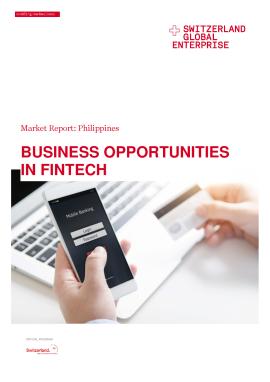The Philippines’ fintech sector, while still nascent compared to its regional peers, is gaining traction and has plenty of room to develop, thanks to the confluence of key factors, such as the fast-growing use of mobile banking, an enabling regulatory environment, and the high number of unbanked and financially underserved Filipinos, which represent around 70% of the adult population.
Bangko Sentral ng Pilipinas (BSP), the country’s central bank, is a crucial enabler for the growth of the fintech industry in the Philippines. It recently asserted that inclusive digital finance is the first objective under the National Strategy for Financial Inclusion 2022-2028. It earlier launched the Digital Payments Transformation Roadmap 2020 to 2023, which targets to increase the country’s adoption of digital financial services. It focused on two goals, namely, to digitalise at least half of the volume of retail payments and to onboard at least 70% of Filipino adults to the formal financial system. Other key initiatives it has undertaken include issuing guidelines for the adoption of the Open Finance Framework, launching the PhiliFintech Innovation Office to spur innovations in the fintech industry, as well as awarding the first six digital banking licenses in the country.
Investors are betting on the Philippines – in the first quarter of 2021, two domestic champions, GCash and Voyager Innovations, fundraised the 2nd and 3rd largest amount registered in the regional fintech market. In effect, the market offers significant opportunities for Swiss fintech players, some of which include:
- Collaboration with Banks: Local banks are accelerating their digitalisation efforts and increasing their allocation of funds for IT-related expenditures. An example of a Swiss company capitalising on this opportunity is offered by Avaloq, which in May 2020 partnered with Bank of the Philippine Islands (BPI), supporting business units ranging from private banking to asset management and investment banking on a single platform.
- Digital Payments and Remittances: Although this segment is relatively established, the Swiss have the opportunity to provide solutions to lower financial inclusion barriers in the country, tailored to suit different segments, including the unbanked and underserved population, which is also looking to explore digital solutions for remittances.
- Alternative Financing: This segment is growing as a result of Filipinos and local businesses that are unable to secure loans from traditional banks due to the complicated application and approval processes. With the rise of alternative financing, there is an increasing demand for other fintech verticals.
- Virtual Assets: The popularity of virtual assets such as cryptocurrencies as an investment in the Philippines has been rapidly growing, opening up new opportunities for Swiss fintech players, including in the area of “play-to-earn” gaming.
- Cybersecurity: As an emerging fintech sector in South East Asia, the need to enhance the country’s cybersecurity is becoming more pressing. Importantly, the BSP is finalising a draft circular mandating the adoption of robust fraud management systems.






